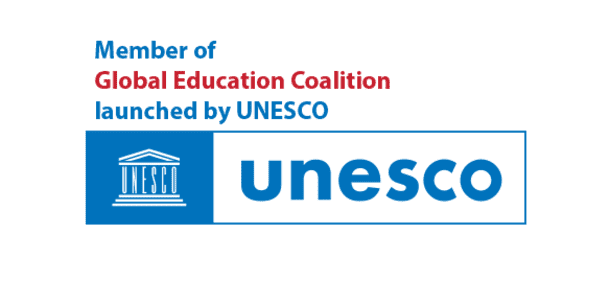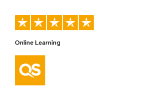
Public Speaking and Presentation In
Persuasive Communication
The Persuasive Communication course is designed to equip individuals with the skills and knowledge necessary to effectively influence and persuade others in various personal and professional contexts. Whether it's convincing stakeholders, negotiating deals, or inspiring change, this course focuses on understanding persuasive techniques and applying them ethically and effectively.
Overview

Persuasive Communication
Course Learning Objectives
Course Learning Outcomes (CLOs):
By the end of this course, students will be able to:
Analyze the key components of persuasive communication, including audience analysis, message construction, and delivery.
Design persuasive messages that are clear, concise, and effective in achieving their purpose.
Apply various persuasive techniques, such as ethos, pathos, and logos, to communicate with different audiences.
Evaluate the effectiveness of persuasive messages by analyzing their impact on different audiences.
Demonstrate an understanding of the ethical considerations involved in persuasive communication.
Student Learning Objectives (SLOs):
Throughout the course, students will be assessed on their ability to:
Identify and analyze the key elements of a persuasive message.
Create a persuasive message that effectively addresses a specific audience.
Use persuasive techniques to enhance the impact of a message.
Evaluate the effectiveness of a persuasive message by considering its audience and context.
Apply ethical considerations when designing and delivering persuasive messages.
By achieving these CLOs and SLOs, students will develop the skills and knowledge necessary to become effective persuaders in their personal and professional lives.

Benefits
With AI, the world is your oyster! It is an emerging field, rapidly growing, ever evolving and watched with a keen eye by industries and markets globally. There are many benefits to an education in AI:
In demand Career
With a Bachelor in artificial intelligence you are equipped with in-demand skills in the rapidly growing field of AI. Knowledge of developing AI systems, data analysis and AI techniques makes you valuable across industries, right from healthcare, finance, tech and more. This degree prepares you for career that has multiple options for diversification. AI professionals include AI engineers, data scientists, machine learning specialists, AI consultants, researchers and more. AI is transformative technology that is revolutionising the world. With an education background in AI, you are set up in an in-demand career field with an exciting future ahead!
Innovation and advancement
Applied AI is all about finding solutions and using AI systems to make life simpler. Applied AI draws on its solid foundation in Computer Science to analyse and provide solutions for real world challenges. You are prepared to address complex problems and contribute meaningfully in domains like healthcare diagnostics, fraud detection, autonomous vehicles, personalised recommendations and more. Being able to apply AI techniques for solving tasks makes for an extremely rewarding and impactful job role!
Solving real world problems
AI aims to constantly bridge the gap between natural intelligence and machine learning - it is a field of cutting edge research, innovation and advancing technology. This makes it ever evolving, with new algorithms, models and techniques being developed. By studying AI at an undergraduate level, you gain a strong foundation in AI fundamentals that help you better understand the latest advancements. You step into a career that empowers you to push the boundaries of AI, contribute to research and development and drive innovation in the field.
100% International
Study at your own pace from anywhere in the world
Recommended by 96% of our graduates
According to our latest alumni survey
50,000+ students
enrolled in Germany’s largest university
Study contents
Contents
I. Introduction
Definition of Persuasive Communication
Importance of Persuasive Communication in Personal and Professional Life
Thesis Statement: Effective persuasive communication is a crucial skill that can be learned and mastered to achieve success in various aspects of life.
II. Understanding the Audience
Identifying the target audience
Understanding their needs, wants, and values
Knowing their motivations and emotions
How to tailor your message to the audience
III. Crafting a Persuasive Message
Understanding the elements of a persuasive message:
Claim: The central argument or message
Evidence: Supporting facts, data, or expert opinions
Warrant: The logical connection between the claim and evidence
Qualifiers: Limiting or clarifying statements
Rebuttal: Anticipating and countering opposing arguments
Strategies for crafting a persuasive message:
Emotional appeals: Using emotional language and imagery
Ethos: Establishing credibility and authority
Pathos: Appealing to emotions and personal values
Logos: Using logical reasoning and evidence
IV. Delivery and Presentation
Effective verbal communication skills:
Clarity and concision
Confidence and assertiveness
Body language and nonverbal cues
Tone of voice and inflection
Nonverbal communication skills:
Eye contact and facial expressions
Posture and physical appearance
Hand gestures and body language
V. Overcoming Objections and Countering
Counterarguments
Identifying common objections and counterarguments
Anticipating and preparing responses to objections
Using persuasive techniques to overcome objections:
Acknowledging the concern
Providing evidence or data to support the claim
Offering alternatives or compromises
VI. Conclusion
Summarizing the main points of the persuasive message
Reiterating the claim and evidence
Encouraging the audience to take action or adopt a particular point of view
Admission
Admission Criteria
Introduction:
As a future professional, I believe that effective communication is the key to success in any field.
However, it's not just about conveying information; it's about influencing others to take action. That's why I'm excited to apply to the Persuasive Communication program at [University Name]. I'm eager to develop my skills in crafting compelling messages and building persuasive strategies that can make a lasting impact.
Personal Experience:
In my previous role as a marketing coordinator, I was tasked with creating campaigns that would increase brand awareness and drive sales. While I had some experience with writing and design, I quickly realized that my efforts were falling flat. My messages weren't resonating with the target audience, and my conversion rates were dismal. It wasn't until I attended a workshop on persuasive communication that everything clicked. I learned how to structure my messages using storytelling techniques, how to anticipate and address objections, and how to use emotional appeals to drive engagement. The results were astonishing – our campaigns saw a significant increase in engagement and conversion rates.
Why Persuasive Communication Matters:
In today's fast-paced, digitally driven world, people are bombarded with information from all directions. It's no longer enough to simply present facts; we need to persuade others to care about what we're saying. Persuasive communication is the art of crafting messages that resonate with our audience, build trust, and inspire action. As a future professional, I want to master this art because I believe it has the power to transform industries, build stronger relationships, and create positive change.
Goals and Objectives:
Through the Persuasive Communication program at [University Name], I aim to gain a deeper understanding of the psychological and sociological factors that influence human behavior. I want to develop expertise in crafting persuasive messages that are tailored to specific audiences, as well as learn how to design effective strategies for measuring persuasion. Ultimately, I hope to become a skilled persuader who can help organizations achieve their goals by building strong relationships with their audience.
Conclusion:
The Persuasive Communication program at [University Name] offers me the perfect opportunity to hone my skills in this critical area of study. With its esteemed faculty, cutting-edge research facilities, and emphasis on experiential learning, I'm confident that this program will equip me with the knowledge and skills necessary to succeed as a persuasive communicator. I'm excited to join the [University Name] community and contribute my own perspectives and experiences to the pursuit of excellence in persuasive communication.
References:
[Name], Marketing Manager at [Company Name]
[Name], Professor of Communication at [University Name]
Careers
Start Your Career Now
Public Relations (PR) Specialist: PR specialists use persuasive communication to promote organizations, products, or services to the public and media.
Sales Representative: Sales reps use persuasive communication to convince customers to buy their products or services.
Marketing Manager: Marketing managers develop campaigns that persuade customers to engage with a brand, purchase a product, or adopt a service.
Business Development Manager: Business development managers use persuasive communication to build relationships with clients, negotiate deals, and secure new business opportunities.
Political Campaign Manager: Political campaign managers use persuasive communication to sway public opinion and influence voters during elections.
Teaching/Education: Teachers and professors use persuasive communication to engage students, convey complex information, and encourage learning.
Corporate Trainer: Corporate trainers design and deliver training programs that persuade employees to adopt new behaviors or skills.
Fundraiser: Fundraisers use persuasive communication to secure donations, grants, or sponsorships for non-profit organizations.
Policy Analyst: Policy analysts use persuasive communication to influence policymakers and shape public policy decisions.
Brand Ambassador: Brand ambassadors promote products or services through persuasive communication, often in a social media or influencer capacity.
Advertising Account Manager: Advertising account managers work with clients to develop advertising campaigns that persuade target audiences to take action.
Event Planner: Event planners use persuasive communication to secure sponsorships, negotiate with vendors, and promote events to attendees.
Lawyer/Attorney: Lawyers use persuasive communication to advocate for clients in court, negotiate settlements, and draft contracts.
Digital Content Creator: Digital content creators (e.g., bloggers, YouTubers) use persuasive communication to engage audiences and promote products or services through their content.
Speechwriter: Speechwriters craft speeches that persuade audiences on behalf of CEOs, politicians, or other public figures.
Consultant: Management consultants use persuasive communication to advise clients on strategy, operations, and organizational change.
Media Relations Specialist: Media relations specialists build relationships with journalists and influencers to secure media coverage and promote organizations or products.
Non-Profit Professional: Non-profit professionals use persuasive communication to raise awareness about causes, secure donations, and advocate for social change.
Social Media Manager: Social media managers create engaging content that persuades followers to interact with a brand or organization on social media platforms.
Student reviews
Coming Soon.
Tuition fees
All our study programmes include the following benefits
- Teaching and study material
- Marking of your end-of-module exams
- Monthly live and recorded tutorials
- Use of the online campus
- Individual study coaching
- Online exams
- Career coaching
- Learn English for free
Our global recognition

IU is recognised by WES Canada and U.S., which means your degree can be converted to points in the local system for purposes of immigration, work, or studies.

As the first EU institution in UNESCO's Global Education Coalition, IU is committed to ensuring accessible quality education to students in crisis worldwide through free online micro-credentials.
Our company partners

For over 20 years, IU has established partnerships with leading global companies. This offers you the chance to gain firsthand experience through internships and projects and allow us to adapt our learning content to the ever-evolving needs of the labour market. You'll benefit from an education designed to bridge the gap between theory and real-world practice, ensuring your readiness for your future career.
Recognition
Recognition of previous achievements
Have you already completed a training course, studied at a university or gained work experience? Have you completed a course or a learning path through EPIBM LinkedIn Learning, and earned a certificate? Then you have the opportunity to get your previous achievements recognised, and complete your studies at EPIBM sooner.

Save time:
Skip individual modules or whole semesters!
Even before you apply for a study programme, we’ll gladly check whether we can take your previous achievements into account: 100% online, no strings attached. Simply fill in our recognition application form, which you can find under the content section of each study programme's webpage, and upload it via our upload section. You can also e-mail it to us, or send it via post.
Send an email to [email protected] to find out which previous achievements you can get recognised. You can get your previous achievements recognised during your studies.
Recognition files
Autonomous vehicles developer
With AI, the world is your oyster! It is an emerging field, rapidly growing, ever evolving and watched with a keen eye by industries and markets globally. There are many benefits to an education in AI:
That’s why after graduating, you’ll be able to apply your professional skills and knowledge, and work for development teams at any sector you find appealing.


Augmented reality (AR/VR) developer
Virtual (or augmented) reality isn’t all just fun and games, as great and enjoyable as that aspect is. It can also be used for groundbreaking social and psychological research, defensive purposes and therapy.
With an Applied Artificial Intelligence degree from IU University of Applied Sciences, you can take part in this vital field of technological development, and work on a wide variety of interesting projects.
Change what the world thinks about the possibilities that AI offers, and make a real difference in people’s lives, while enjoying every step of the process.
F.A.Q
Frequently Asked Questions
You might also be interested in these study programmes
Accredited and certified













